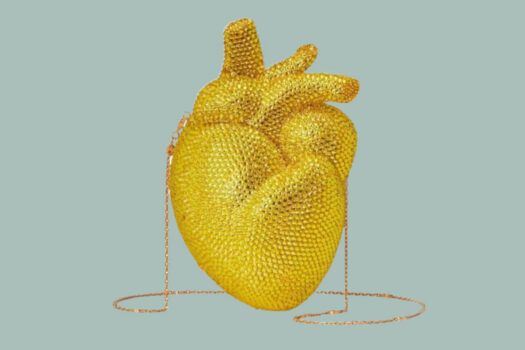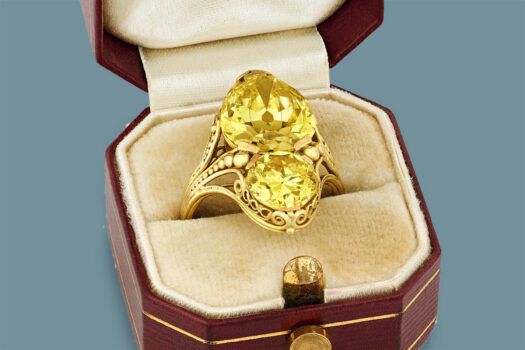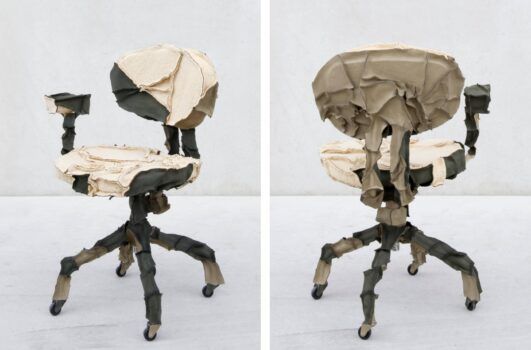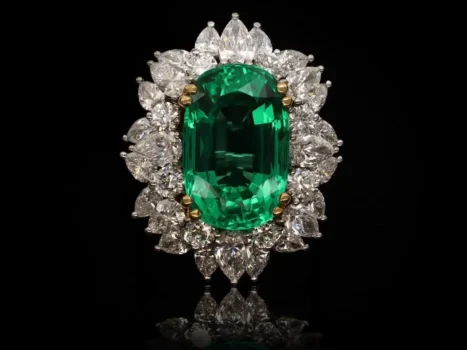Seaman Schepps, often referred to as “America’s court jeweler,” is famous for his elegantly spiraling turbo shells and plump, gold-laced shrimp crafted from rock crystal, wood and hardstones. But this chunky gold bracelet from 1940 is hardly an outlier in his body of work. “Schepps was already making 18-karat yellow-gold cuff-style bracelets, such as the Fifties and Jazz cuffs,” says Tiina Smith, who is offering the jewel on 1stDibs.
Because of this bracelet’s unique details and elements — rubies dotting the hinges, diamonds set in star patterns, deep muscular grooves and a crossover latch — Smith believes it was a custom commission for a private client. “One can see how the jeweler would be comfortable making this creation, which seems on steroids versus the other cuffs he was making at the time,” she says.

As intriguing as its unusual features is what is known of the jewel’s history before Smith acquired it. Its most recent owner was the legendary artist Andy Warhol, who harbored a passion for fine jewelry and watches — which no one knew about until his death, in 1987. When Fred Hughes, Warhol’s manager and executor of his estate, arranged for two curators to organize the artist’s archives in preparation for a Sotheby’s sale, they discovered a concealed space between two cabinets that was filled with Cartier, Tiffany & Co., Elsa Peretti and Bulgari creations, plus a René Boivin piece made for socialite Millicent Rogers, along with many other jewels. Dozens of luxury watches were found in the canopy above his bed.

“I have the catalogue from that 1988 Sotheby’s sale with photos and the description of this bracelet in it,” says Smith, who is known for her rigorous authentication process. “In addition, I confirmed the markings and craftsmanship, which add additional verification that this belonged to Warhol and was made by Seaman Schepps in the 1940s.”
The verified celebrity provenance of the piece is uniquely compelling, as is the element of mystery. “The fact that this bracelet was specifically chosen by Andy Warhol, a disruptor who changed the world of art, contributes greatly to its value,” says Smith. “His idea of what was important and meaningful in art and jewelry has enormous weight.”
Of course, we can only speculate about which of the bracelet’s attributes enchanted Warhol and led him to purchase it. “I think the original owner probably requested that certain aspects be included in its design,” says Smith. “These features were probably very personal to the buyer, almost like someone commissioning a charm bracelet with charms of personal meaning.” Maybe Warhol came to a similar conclusion and recognized a connection to his own artistic practice. In any case, says Smith, he clearly “saw and appreciated the bracelet’s creativity and distinctive beauty.”









